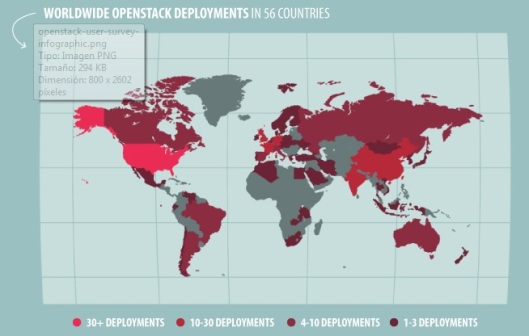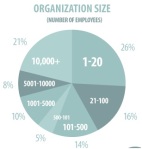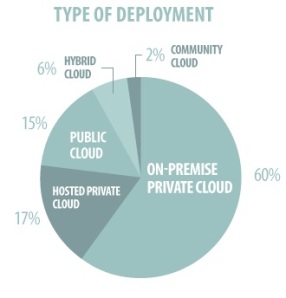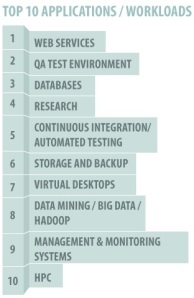A few weeks ago, Gartner analyst
Allessandro Perilli recently says the project has a long way to go
before it’s truly an enterprise-grade platform. In fact, in a
blog post he says that
“despite marketing efforts by vendors and favorable press, enterprise adoption remains in the very earliest stages” … The main reasons for that, in its opinion, are:
- Lack of clarity about what OpenStack does.
- Lack of transparency about the business model.
- Lack of differentiation.
- Lack of pragmatism.
OpenStack backers rebuffed such claims,
and I must recognize that I’m biased because I work in a European
company (Tissat, based in Spain, and with several DataCentres and one of
them -Walhalla- certified as Tier IV by the Uptime Institute) that offer IaaS
Services using OpenStack. But I also have to recognize that OpenStack is
a solution that is continuously evolving and growing, and therefore I
agree with some of the statement of Mr. Perilli, but I disagree with
its main conclusion:
Maybe he’s right and the fact that big
companies are contributing to its code as well as they also are
supporting and using it to deliver services it’s unusual, but let me
mention some of them that are supporting and using it: RackSpace and Nasa (maybe they aren’t the biggest, but they were the first ones), IBM (IBM’s open cloud architecture), HP (HP Cloud Services), Cisco (WebEx
Service), they don’t seem small player, do they? (I beg your pardon
for the irony). Besides, relatively smaller companies are contributing
to, supporting and selling services on OpenStack as the traditional
Linux Distro Providers: RedHat, Novell (Suse), Canonical (Ubuntu). Finally other big player that are using OpenSack are PayPal-eBay, Yahoo, CERN (the European Organization for Nuclear Research), ComCast, MercadoLibre, Inc. (e-commerce services), San Diego Supercomputer Center, and so on., that aren’t small player either …
Could you think in player in the IT
providers market as big as the firsts mentioned? Sure, Microsoft,
Google, Oracle, … Well, surprise, last week Oracle announced that they embrace OpenSatck.
Yes, although Oracle acquired Nimbula on March (and maybe the Nimbula
shift from its own proprietary private cloud approach to become an
OpenStack-compatible software supplier was the first sign of the
change), they are going to integrates OpenStack cloud with its
technologies: “Oracle Sponsors OpenStack Foundation; Offers Customers Ability To Use OpenStack To Manage Oracle Cloud Products and Services”. Oracle’s announcement said that:
- Oracle Linux will include integrated OpenStack deployment capabilities.
- Solaris too will get OpenStack deployment integrations
- Oracle Compute Cloud and Oracle Storage Cloud services will be integrated with OpenStack
- Likewise, Oracle ZS3 Series network attached storage, Axoim Storage
Systems, and StorageTek Tape Systems will all get integrated.
- Oracle Exalogic Elastic Cloud hardware for running applications will get its own OpenStack integration as well.
- And so on.
i.e. Oracle speaks about a significant
new support for OpenStack in an extremely ambitious manner, pretty much
saying that it would support OpenStack as a management framework across
an expansive list of Oracle products. Evidently, Oracle movement is a
great support for OpenStacck (and for my thesis, too, and probably
another point against Mr. Pirelli’s opinion) …
However, to be honest, let me doubt (at
the moment) about the ultimate motivations and objectives of Oracle:
I’ve got the impression that Oracle is simply ceding to the pressing of
the market, adjusting to the sign of the times, but it’s not committed
to what makes OpenStack means: a collaborative and inclusive community:
On one hand, as I stated that in my
“Cloud Movements (2nd part): Oracle’s fight against itself (and the OpenStack role)” post that
Oracle is fighting against itself
due to its traditional and profitable business model is challenged by
the Cloud model, and it has been delaying its adoption as much as
possible (as IBM did when its mainframes ran mission-critical
applications on legacy databases, and a new -by then- generation of
infrastructure vendors -DEC, HP, Sun, Microsoft and Oracle- challenged
it and disrupted the old IBM model): it was conflicted about selling the
lower-priced, lower-margin servers needed to run them (even Oracle CEO
Larry Ellison used to disdain Cloud Computing, e.g. he called cloud
computing “nonsense” in 2009). On the other hand, the recent Oracle
announce doesn’t necessarily imply a change in this matter.
Besides the Oracle movement raise
suspicions, even disbelief, not only in me but in other people. Let me
quote some paragraphs of Randy Bias’ (co-founder and CEO of cloud
software supplier CloudScalin post titled
“Oracle Supports OpenStack: Lip Service Or Real Commitment?”. Randy’s position could be summarized in its words
“Oracle
is the epitome of a traditional enterprise vendor and to have it
announce this level of support for OpenStack is astonishing”. Randy also wonders
“Can
Oracle engage positively with the open-source meritocracy that
OpenStack represents? Admittedly, at first blush it’s hard to be
positive, given Oracle’s walled-garden culture.” And to back its answer, Randy review some Oracle facts:
- “Oracle essentially ended
OpenSolaris as an open-source project, leaving third-party derivatives
of OpenSolaris (such as those promulgated by Joyent and Nexenta) out in
the cold, having to fork OpenSolaris to Illumos.
- Similarly, the open-source
community’s lack of trust can be seen ultimately in the forking of MySQL
into MariaDB over concerns about Oracle’s support and direction of the
MySQL project. Google moved to MariaDB, and all of the major Linux
distributions are switching to it as well”.
However, finally Randy concludes: “It’s
hard not to have a certain amount of pessimism about Oracle’s
announcement. However, I’m hopeful that this signals an understanding of
the market realities and that its intentions are in the right place. We
will know fairly soon how serious it is based on code contributions to
OpenStack, which can be tracked at Stackalytics. (So far, there are zero
commits from Oracle and only two from Nimbula, Oracle’s recent cloud
software acquisition.). Personally, I’m happy to see Oracle join the
party. It further validates the level of interest in OpenStack from the
enterprise and reinforces that we’re all building a platform for the
future”.
And the last words of Randy gets me back
to my initial point: I really think OpenStack is already a mature enough
platform to make business (in all the ways other IT products or
solutions) as the giants and other big companies of IT area are showing
(IBM, HP, Cisco, Oracle, RackSpace, Yahoo, PayPal, ComCast, RedHat,
Novell, Canonical, etc.).
Finally, let me end this post with some partial pictures extracted from an Infographic elaborated by OpenStack (you can get
the whole infographic here):
The current OpenStack deployment comprises 56 countries:
Covering any-size organizations and a wide range of industry sectors:
Besides, any type of deployments is currently made:
And currently the 10 types of applications most deployed on OpenStack are:




